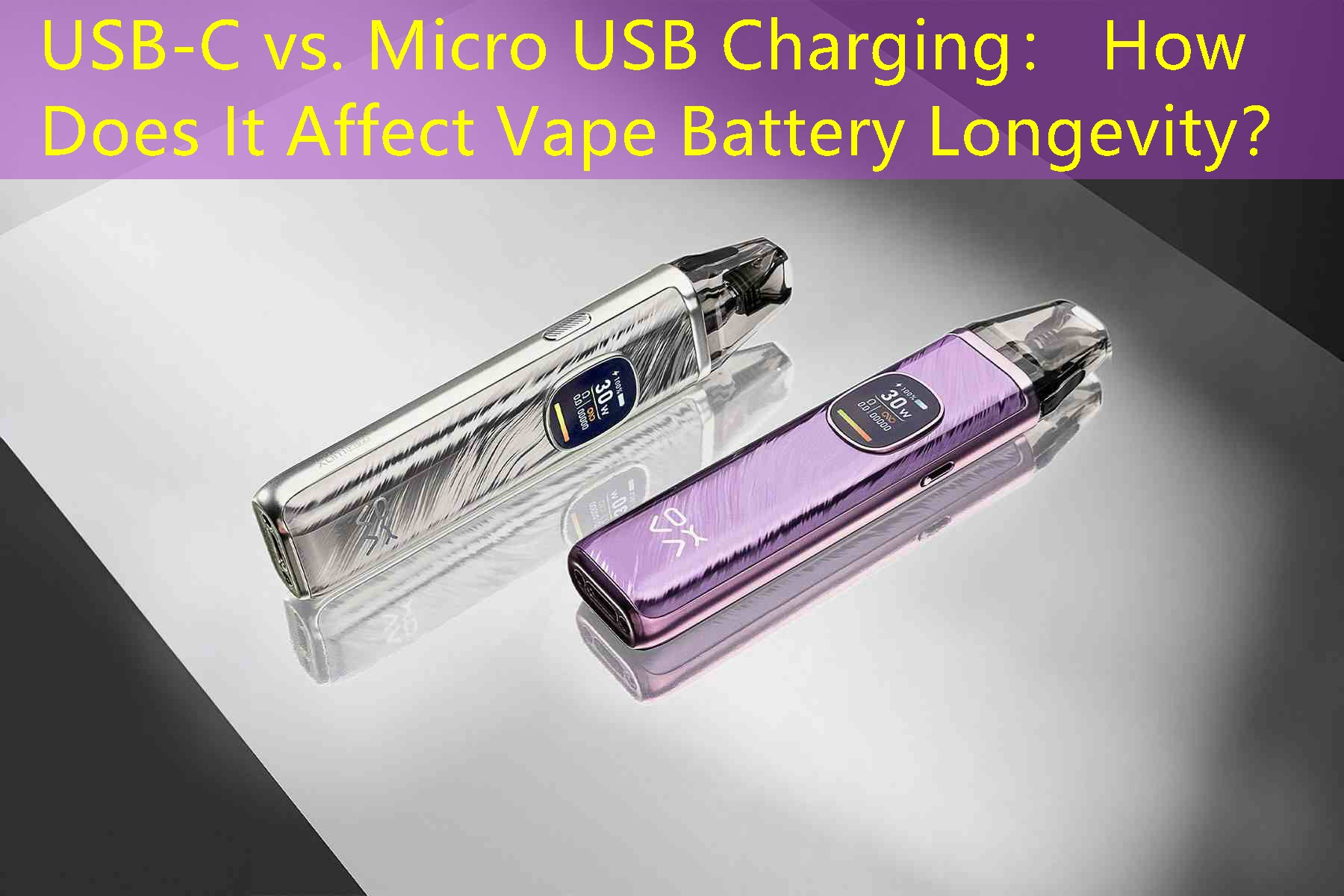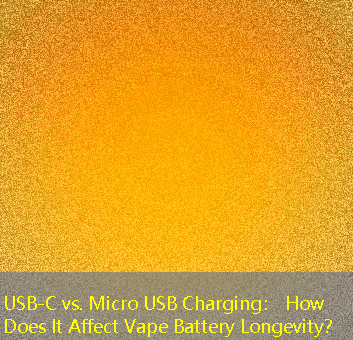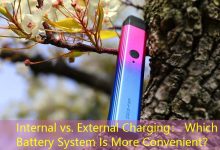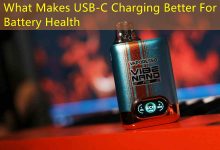Nhanganyaya
With the rapid evolution of vaping technology, Kunzwisisa misiyano pakati pekuchaja nzira dzakakosha, kunyanya kana zvasvika kune USB-C uye micro USB kubatana. Sezvo fodya yemagetsi ichiramba mberi, zvishandiso zvemidziyo zvakava zvakanyanya, Kubatanidza zviri nani bhatiri tekinoroji iyo inokanganisa hupenyu hwakareba uye kushandisa zvakanaka. Ichi chinyorwa chinoongorora USB-C vs. Micro USB Kubhadharisa, inoratidza kuti izvi zvinobatanidza zvinokanganisa sei vape battery lengovity, uye kuongorora zvavakatemwa, Zvakanakira, uye zvinokanganisa.
Chigadzirwa Overview uye Rondedzero
Both USB-C and Micro USB serve as charging interfaces for various electronic devices, kusanganisira vape peni uye mods.
Micro USB
Micro USB has been a standard charging method for many years. Kazhinji, inoyera 6.85mm x 1.8mm, Kuita kuti zvidiki zvakakwana zvive zvemidziyo inotakurika. While it’s widely compatible with many electronics and accessories, Micro USB has limitations in terms of power and speed.
USB-C
Pane rimwe divi, USB-C, introduced more recently, is quickly becoming the standard for charging a variety of devices, including vaping products. Measuring 8.4mm x 2.6mm, it allows for reversible connections, making it user-friendly. USB-C supports faster charging speeds, with capabilities of up to 100 watts, and data transfer rates significantly higher than Micro USB.
Advantages of USB-C Charging
The transition to USB-C presents several advantages that can significantly enhance the vaping experience.
Faster Charging
One of the most notable benefits of USB-C charging is the speed. With its ability to deliver higher wattage, USB-C can fully charge a vape device in a fraction of the time it would take using Micro USB. This is crucial for users who require reliable, quick charging solutions, especially for high-demand devices that consume more power.
Enhanced Data Transfer
USB-C also facilitates enhanced data transfer capabilities. This is particularly beneficial for vape devices that integrate advanced features, allowing users to sync data, update firmware, or tweak settings conveniently.

Durability and Future-Proofing
USB-C connectors are designed to be more robust compared to their Micro USB counterparts. They are built to withstand more insertions and have a longer lifespan. As tech continues to advance, opting for USB-C may future-proof devices, ensuring compatibility with the latest charging technologies.
Disadvantages of USB-C Charging
Despite its numerous advantages, USB-C is not without its challenges.
Compatibility Issues
While USB-C is increasingly becoming a standard, some older vape products may not support this connection. Users with existing Micro USB devices would need to consider the compatibility when upgrading, as using improper connections can damage the device.
Yakakwirira yekutanga mutengo
Devices utilizing USB-C may come with a slightly higher price tag due to the advanced technology. For budget-conscious users, the initial investment may be a deterrent, especially when establishing a comprehensive vaping setup.
Advantages of Micro USB Charging
Micro USB still offers benefits that appeal to certain user groups.
Widespread Availability
Micro USB is one of the most common charging ports used across a wide variety of devices, making cables and chargers readily accessible and often cheaper. Users can easily find replacements or additional accessories.
Mutengo-kushanda
For users who do not require high-speed charging, Micro USB can be a cost-effective solution, allowing budget-focused consumers to invest their funds in other aspects of vaping.

Disadvantages of Micro USB Charging
Zvisinei, Micro USB also has its own share of drawbacks.
Slower Charging Speeds
The most significant disadvantage is the slower charging speed. For heavy vapers or those who use high-powered devices, longer charge times can be a significant inconvenience.
Poor Durability
Micro USB connectors are often more fragile compared to USB-C, leading to potential wear and tear over prolonged use. This fragility may require users to frequently replace cables, thus incurring additional costs over time.
Target Mushandisi Kuongorora
The target demographics for vape devices utilizing either USB-C or Micro USB vary significantly.
Casual Vaper
Casual vapers who prioritize ease of use and cost-effectiveness might find Micro USB an ideal option. They may not require the fast-charging capabilities that USB-C offers and often prioritize budget over performance.
Enthusiast Vapers
Zvekare, enthusiast vapers looking for performance and advanced features are more likely to favor devices equipped with USB-C. This group values efficiency and convenience, making USB-C an attractive option.
Mhedziso
Mukupfupikisa, the choice between USB-C and Micro USB charging can have a notable impact on vape battery longevity and overall user experience. By understanding the specifications, Zvakanakira, and disadvantages of both charging methods, users can make informed decisions that align with their preferences and lifestyle. As the vaping industry continues to evolve, keeping abreast of technological advancements, such as USB-C, will be essential for maximizing battery performance and ensuring a satisfying vaping experience.







